Cache vs. Cash
What is the difference?
Homophones are words that sound the same but are spelled differently or have different meanings. They often cause trouble for English learners and native speakers.
Cache and cash are an example of homophones. They are pronounced the same but are spelled differently and mean different things. While they can cause confusion, learning their proper meanings and uses will help you in using them properly. With practice, you will be able to master both of these words in no time.
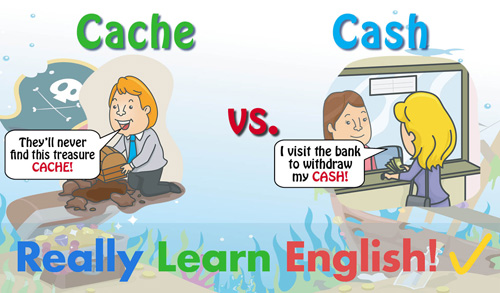
Let's look at some examples to help you learn the distinction.
Click Here for Step-by-Step Rules, Stories and Exercises to Practice All English Tenses
Cache
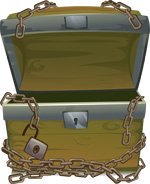
A cache is a hiding place. They are often places in the ground used to hide treasure.
Examples:
- They will never find our treasure cache if we hide it here.
(They will never find our hidden treasure if we hide it here.)
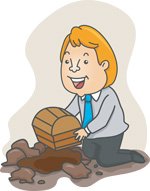
- Let's put the cache underneath the tree to ensure no one looks for it.
(Let's put the hiding place underneath the tree to ensure no one looks for it.)
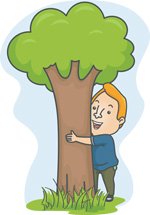
- We can use the trunk of the car as the cache while we are away.
(We can use the trunk of the car as the hiding place while we are away.)
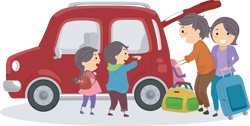
Cache can also refer to what is being hidden.
Examples:
- The cache was money and gold.
(The hidden objects were money and gold.)
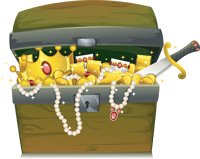
- The story was about two pirates who found a cache consisting of treasure.
(The story was about two pirates who found hidden treasure. )
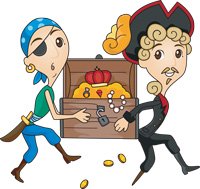
- I think the cache is all gold.
(I think the hidden object is all gold.)
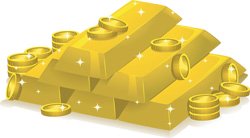
As a verb, cache is the act of hiding something.
Examples:
- Can you cache the supplies quickly?
(Can you hide the supplies quickly?)

- My grandmother's money is cached in a jar in the cupboard.
(My grandmother's money is hidden in a jar in the cupboard.)
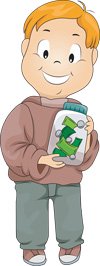
- Treasure is never cached where it can easily be found.
(Treasure is never hidden where it can easily be found.)
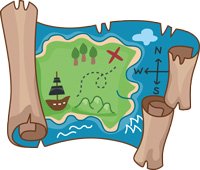
Collocations
Collocations are commonly spoken phrases in English that occur naturally in speech. Becoming familiar with collocations will allow you to speak naturally with others and provide smooth dialogue in conversations.
Cache Collocations
- A cache of
The police found a cache of stolen weapons.
Cash
Cash is both a noun and a verb.
As a noun, cash refers to money in the physical form of paper notes or coins. It is different from money in credit or in a bank account.
Examples:
- Do you have any cash?
(Do you have any money on hand?)
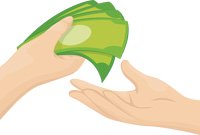
- I need to go to the bank to take out some cash.
(I need to go to the bank to take out some money.)
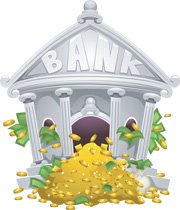
- I borrowed some cash from my parents to pay for dinner.
(I borrowed some money from my parents to pay for dinner.)
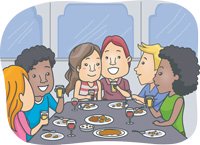
Cash can also be used as a verb. It refers to the act of receiving money in the form of paper notes or coins.
Examples:
- Can you cash this check?
(Can you get money for this check?)
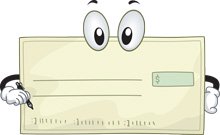
- I need to cash in this receipt and get my money back.
(I need to bring in this receipt and get my money back.)
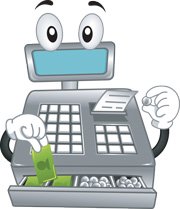
- The bank refused to cash her check.
(The bank refused to give her money for her check.)
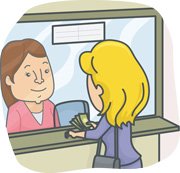
Cash Collocations
- Cash it in
Take the check and cash it in - Take out cash
I'm going to the ATM to take out cash - Pay cash
The store wants you to pay cash for the product. - Cash desk/register/machine
The cash machine is located at the back of the building. - In cash
I have 500 dollars in cash. - spare cash
I have some spare cash in my wallet. - Cash flow
I have lots of cash flow right now. (I have lots of money right now.)
More Tips
Knowing when to properly use cache and cash can be confusing because they sound the exact same. But if we can associate their proper meanings with them, we will be able to use each one correctly.
Let's remember that cache usually refers to something associated with hiding, and cash always has to do with money. Remember that you can store cash in a cache.
Or sometimes if we try to remember little stories about words and letters, we will be able to remember their meaning easier. Do you find the letters in cache to be odd? The "sh" sound that is in cache is instead spelled with a "ch." Try to think of cache as hiding the "sh" sound and you will be able to remember that cache always has to do with hiding.
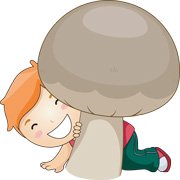
A Story to Practice Cache vs. Cash
Johnny and Jesse are brother and sister. They like to go adventuring in the woods in their neighborhood. They pretend they are pirates or hunters searching for hidden treasure like cash in small caches in the forest.
They like to hide things, like coins, cash or toys. Often though, they don't have very much cash because they are only small children. But if they find coins or cash in the couch cushions, they will collect it for their treasure.
They make small caches in the trees or in the ground. Sometimes they bring their shovels and dig the caches. Or other times, they make caches out of twigs and rocks. Then they draw a map to the cache and give it to other kids in the neighborhood.
One day, one of the parents in their neighborhood got all of the children together and gave them a new map to a cache full of cash. Jesse and Johnny were very excited. The map said the cache held $100 in cash to be given to whomever found the cache the fastest.
Johnny and Jesse really thought they could win because they were excellent cache makers. Together, they set off in the forest and searched for the hidden cash. After about 30 minutes of looking, they finally found the tree where the cash was cached. They opened a box under some leaves and they found the $100 cash.
Jesse and Johnny were very excited. They decided to spend their new cash on treasure for new caches they would make for their friends.
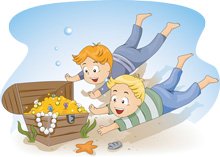
Quiz
Fill in the blanks with the appropriate word. Each question is worth ten points.
- Mom hides chocolate chip cookies in a _________ (cache / cash) in the cupboard.
- There's a secret _________ (cache / cash) of money underneath the floorboards of the church according the popular legends.
- The waitress goes to the bank every Monday to __________ (cache / cash) her cheque.
- Megan __________ (cached / cashed) all of her jewelry for fear of it being stolen.
- Do you think we need _________ (cache / cash) for the concert or will they take credit cards?
- There's a __________ (cache / cash) of illegal weapons in a trunk in the basement.
- These days people rarely carry ________ (cache / cash).
- Credit cards and online banking are doing away with __________ (cache / cash) transactions.
- I think you should ___________ (cache / cash) those stolen goods before someone catches you.
- I have lots of __________ (cache / cash) locked away in the safe.
Answer Key
cache | 2. cache | 3. cash | 4. cached | 5. cash | 6. cache | 7. cash | 8. cash | 9. cache | 10. cash
Get Updates, Special Offers, and English Resources
Download your FREE GIFT (the first two chapters of
English Short Stories Book and Workbook)
as soon as you join!

By submitting your email, you consent to receiving updates and newsletters from us and to the sharing of your personal data with third parties for the purposes of sending you communications. We will not spam you. You can unsubscribe at any time. For more information, please see our privacy policy.





